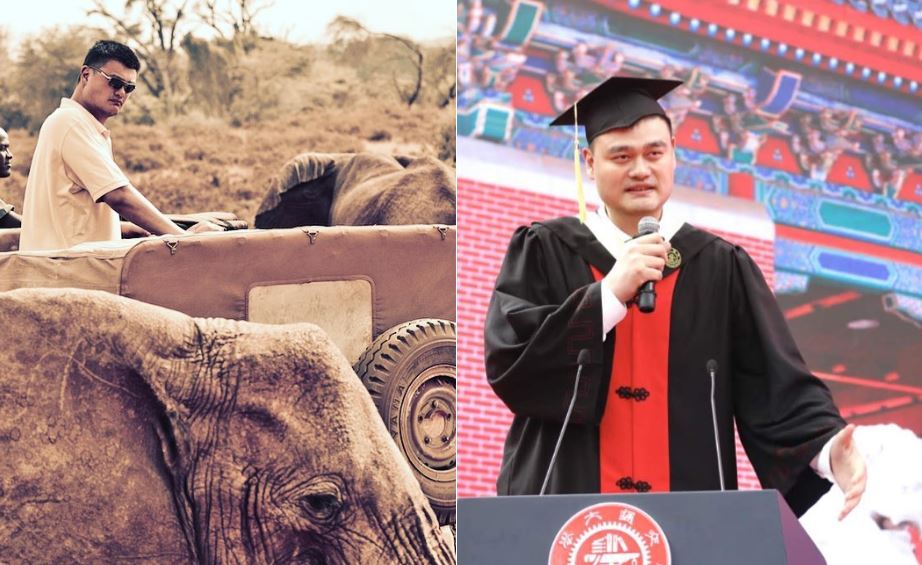
In Yao Ming’s story, vision is just as important as vertical reach. Standing a towering 7 feet 6 inches tall, he changed not only his own career but also basketball’s image as a platform for intercultural dialogue. Yao was essentially destined for a career in sports since she was born in Shanghai to parents who were both professional basketball players. But his $160 million fortune wasn’t created by fate alone; rather, it was the result of strategic planning, flexibility, and a readiness to change.
More than just a sporting event, his 2002 NBA debut as the Houston Rockets’ first overall pick marked a shift in culture. Yao became well-known on two continents in a matter of months, with his games being televised to more than 200 million people in China. His jerseys, merchandise, and endorsements became extremely popular. Large international companies, including beverage companies and sportswear behemoths, swarmed to collaborate with him because they realized his influence went far beyond basketball courts.
Yao Ming – Profile Overview
| Category | Details |
|---|---|
| Full Name | Yao Ming |
| Date of Birth | September 12, 1980 |
| Birthplace | Shanghai, China |
| Height | 7 ft 6 in (2.29 m) |
| Weight | 310 lbs (141 kg) |
| Profession | Retired Professional Basketball Player, Businessman, Basketball Executive |
| NBA Career | 2002–2011 (Houston Rockets) |
| CBA Career | 1997–2002 (Shanghai Sharks) |
| Major Achievements | 8× NBA All-Star, Hall of Fame Inductee (2016), CBA Champion, Houston Rockets Jersey #11 Retired |
| Net Worth | $160 Million |
| Sources of Wealth | NBA Salary (~$93 Million), Endorsements, Investments, Business Ventures |
| Spouse | Ye Li |
| Children | 1 Daughter – Yao Qinlei |
| Education | Economics Degree – Shanghai Jiao Tong University |
His NBA salaries, which peaked at $17.6 million in his final season, amounted to approximately $93 million at the start of his career. His endorsements, however, were especially profitable and kept coming in even after injuries started to reduce his playing time. His position as a commercial powerhouse was solidified by these agreements, which were frequently customized for both the Chinese and American markets.
But his path was anything but simple. His time on the court was severely limited by persistent foot and ankle injuries, which led to his early retirement at the age of thirty. But it was at this point that Yao’s actual fortitude showed. Instead of becoming less relevant, he changed his focus to ownership and bought the Shanghai Sharks to save them from bankruptcy. Later on, he established Yao Family Wines in California with the goal of catering to China’s expanding luxury consumer market. This was a very creative move that combined personal heritage with brand prestige.
His 2017 position as chairman of the Chinese Basketball Association further demonstrated his impact outside of his own interests. Yao demonstrated his dedication to influencing the future of Chinese basketball by concentrating on player development, commercial rights, and structural advancements in the game. After years of negotiating NBA politics and cross-cultural business, his leadership style proved to be very effective in modernizing the CBA’s operations.
Yao’s $160 million fortune is noteworthy not only because of its size but also because of its sustainability. From real estate to sports teams, his investments are incredibly resilient, enabling his wealth to increase without the volatility typical of post-retirement athlete finances. This is similar to the career paths of people like Michael Jordan and Magic Johnson, whose business empires grew faster than their playing salaries.
Similar to any opponent on the court, Yao broke down social barriers. He became a symbol of athletic diplomacy, dispelled antiquated stereotypes, and represented China on a stage where it had previously been underrepresented. His impact went into philanthropy, where he worked on disaster relief and wildlife conservation, leveraging his notoriety to raise money for causes close to his heart.
Yao not only preserved his legacy but also grew it by using his international notoriety to forge business alliances. The NBA’s expansion in Asia benefited greatly from his ability to bridge markets, opening doors for other foreign players to follow. It established a precedent for how sports stars could act as economic stimulants for whole industries, and the commercial ripple effect was not limited to basketball.
His net worth’s trajectory provides a master lesson in flexibility. Although injuries ended his playing career, they also opened a new one where his impact and income may have increased even more. His personal involvement significantly enhances his endeavors; he is not merely a figurehead but an active participant who makes sure his businesses reflect his values and current market trends.
